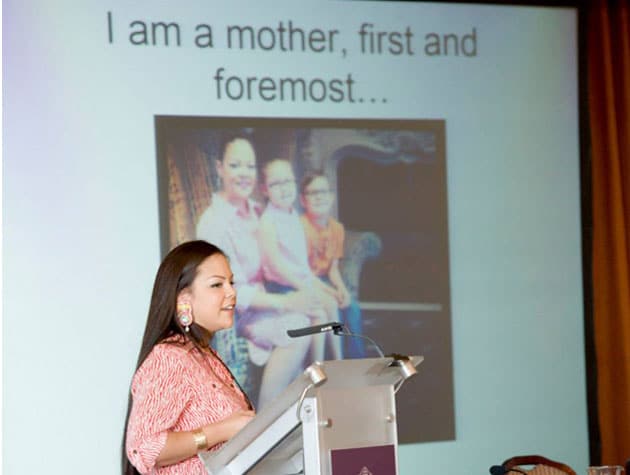A year ago, six female Nobel laureates set out on a nine-day trek across Alberta and British Columbia to find out how Canada’s tar sands expansion is uniquely impacting the lives of women.
The resulting 44-page report [PDF], “Breaking Ground: Women, Oil and Climate Change in Alberta and British Columbia,” contains stories curated from meetings with more than 200 women in 13 communities directly impacted by the tar sands.
“While people look at the environment and climate change — the health of our planet overall — very few look at it from the perspective of women,” said Jody Williams, the leader of the mission and the 2007 recipient of the Nobel Peace Prize for her work to ban landmines. “And as with many crises the world over, it’s the women and children who suffer the most when their environment is destroyed.”
The report looks at how tar sands expansion is impacting the environment, health and the social fabric of communities and contains some disturbing anecdotes.
“Women and their communities feel their concerns are ignored,” the authors wrote, “or worse, they are deemed enemies of the state, facing violence and ostracism for asking difficult questions.”
The expansion of the tar sands industry is happening more quickly than most epidemiological studies can be conducted, but higher rates of cancer have been confirmed in some communities. Still, many in the path of the tar sands have been pushed to sign non-disclosure agreements and the government encourages scientists and doctors to refrain from engaging with the public.
“Our livelihood, our traditional way of life has been taken away from us,” said Celina Harpe, an Elder of Fort McKay, Alberta. “We can’t use the river water, we can’t eat the fish, we can’t go hunting anymore.”
With a loss of livelihood comes a loss of options and the report details how many people feel forced into working for the very industry that threatens their way of life.
In the report, Crystal Lameman of the Beaver Lake Cree speaks out about the impacts of the tar sands and how her husband quit his industry job in order to uphold his values as an indigenous person. But, she said, after a few months of unemployment, he was forced to return. “He had to give up who he is as an indigenous person so he can feed his family, while I stand here and tell you how wrong it is,” she told the delegation. “This is the reality of the oil sands.”
Though there is the option to challenge unjust practices in court, legal fees are often prohibitive. Still, women are finding other routes. Canadians from tar sands communities are traveling abroad to spread their stories. People are independently gathering evidence of environmental, physical, and social harm — and launching movements like Idle No More.
The “Breaking Ground” report ends with such stories of hope for the future. Despite what many women say are industry and government efforts at division, those working to stop tar sands impacts have only become more united.
Watch a video report of the Nobel Women’s Initiative trip to the tar sands:
Photo of Crystal Lameman courtesy of Nobel Womens Initiative
Subscribe to our newsletter
Stay up to date with DeSmog news and alerts







